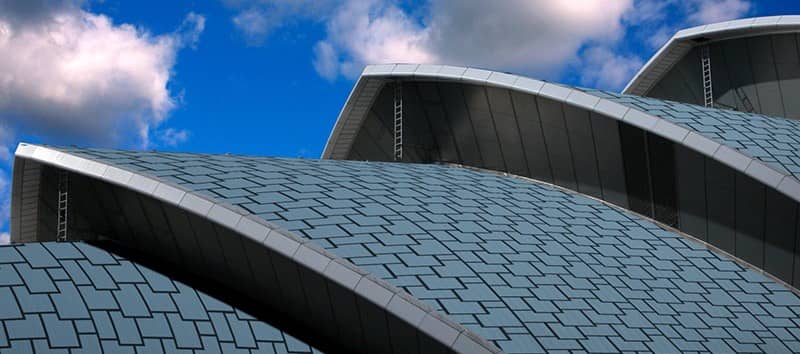 Roof performance varies between the different systems, however the factors affecting the performance of your commercial roof are relatively the same. Your roof is valuable and you need something that will be reliable in the long-run to protect your assets. Chances are you’ll be staying in the same building for an extended period of time, so it’s important that your roof stays with you. In order to provide you with the 9 top factors that affect roof performance, we’ve split the article into a 2 part series. Below are the first 5 criteria.
Roof performance varies between the different systems, however the factors affecting the performance of your commercial roof are relatively the same. Your roof is valuable and you need something that will be reliable in the long-run to protect your assets. Chances are you’ll be staying in the same building for an extended period of time, so it’s important that your roof stays with you. In order to provide you with the 9 top factors that affect roof performance, we’ve split the article into a 2 part series. Below are the first 5 criteria.
1. Roof Design
The design of your roof plays a large role in overall roof performance. Typically, this factor is overlooked as contractors are asked to scope the work and provide their own kind of design rather than specifying the proper design for the building. Since the contractors are trying to win the bid, they often provide designs with the lowest cost. This can be detrimental to your roofing performance as cheapest does not mean best quality. In order to ensure you are getting the best design, ask for detailed specifications from all parties bidding on your roof, and then choose the design that will protect your assets for the long haul.
2. Roof System Selection
After your roof design is complete, the proper roofing system needs to be selected. There are 6 main types of roofing options available to you: built-up (BUR), modified bitumen, EPDM, PVC, TPO, or KEE. Each system has its own unique set of properties to consider when making your decision. For example, one frequently overlooked item is the system’s resistance to UV rays. While some of the systems can add coatings or stabilizers to improve UV resistance, performance in other categories, such as fire, can decrease.
3. Contractor
The contractor you select to install your roof is another key factor in overall performance. Improper installation of your roof will dramatically increase the chance of failures and reduce the life expectancy. Manufacturers have specific assembly instructions for each of their roofing systems that need to be followed carefully to ensure a successful roof. In order to find a contractor who will not cut corners, ask your potential contractors for professional references as well as asking among your peers for their recommended contractors.
4. Maintenance
Without the proper maintenance, a little deficiency can turn into a major problem for your roofing system. Maintenance should be proactive - don’t wait until there is a leak to have your roof inspected. Schedule routine inspections in order to catch potential failures. Once the inspection is complete, timely and proper repairs to your roof are a must. Much like roofing installation, your repairs should be completed by a contractor who will do it right to minimize overall costs and damage.
5. Warranty
With the multiple types of roof warranties on the market, it is important that you read the limitations and exclusions. Too often, a warranty is a piece of paper written to protect the manufacturer rather than the roof and owner/manager.If any of the limitations or exclusions occur, your warranty could be nullified. You want to look at the specifics and then determine if your environment (i.e. experiencing hurricane winds over x mph) is covered and if not, how costly it will be for you to repair. Improper maintenance can also nullify warranties. However, if proper precautions are taken, warranties can provide remedies for leaks, thus prolonging the life of your roof and decreasing long-term costs.
By taking the above factors into consideration, you will be able to ensure that your roof is performing to the best of its ability. Check out Part 2 of this series for four additional factors that affect roofing performance.
-1.png?width=500&height=271&name=FiberTite_Only%20(500px%20wide)-1.png)


-1.png)